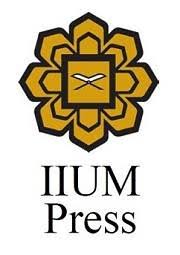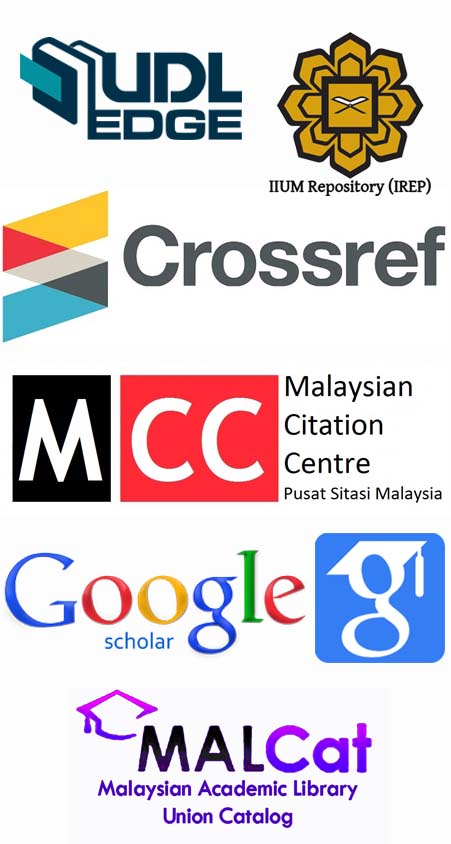Crucial Requirements for Children's Empowerment
DOI:
https://doi.org/10.31436/alburhn.v7i2.316Keywords:
character education, physical development, emotional development, mental development, intellectual developmentAbstract
This paper sheds light on the important and mostly neglected role that parents play in raising their children, namely empowerment through character development, impartment of knowledge and skills. The key objective of this paper is to enhance the understanding of the concept of empowerment of children from the Islamic perspective and the importance of character and values education in today’s society. The paper is structured around six core sections describing the role of parents in children’s (1) virtues and character formation and development, (2) physical development, (3) emotional development, (4) mental development, (5) intellectual development, and lastly their role in preparing children for the realities of life and death. The focus of this paper is character formation and development. Character development and impartment of knowledge and skills are the three crucial and mandatory requirements for children’s empowerment. The paper outlines the ideas underlying character refinement or character education focusing on its meaning, aims, importance, and the role of parents, teachers, and community as character educators. It outlines some of the moral qualities of the Prophet (peace and blessings be upon him) as the universal model of all virtues and goodness. This is qualitative research employing descriptive methods with literature review analysis. The primary sources of this paper comprise selected verses from the Qur’an and their exegesis (tafsir) and Hadith, both of which constitute the major source of guidance for Muslims. Its secondary sources consist of books, journals, and other materials. The English translation of the selected verses is based on Abdullah Yusuf Ali’s The Meaning of the Holy Qur’an and The Qur’an: Arabic Text with Corresponding English Meanings by Saheeh International because of their simplistic and comprehensive language. Due to the multidimensional use of words in the Arabic language, it is difficult to translate them into one specific word, therefore, we have retained the Arabic concepts but given some of their meanings in the brackets. Our main contention in this paper is that: first, knowledge, skills, and values or personality traits need to be combined for a thriving life; second, moral values are of paramount significance to peaceful coexistence and harmony in society. They are critical for sustainable living. Without them, there is no cohesion and solidarity among people. Hence, there is no civilization; third, learning is of little value and with no soul unless core ethical values are added to it. Hence, one of the aims of education is to graduate ethical individuals; fourth, the development of character in children is not just the responsibility of parents and schools, it is also the responsibility of those who come into contact with them; last but not least, character education should be included as a core component of schools’ curriculum.
Downloads
References
Akers, Nicole. (March 12, 2020). “How Kids Are Perfect Mirrors of their Parents: Take a look at your “self””. Available from https://medium.com/publishous/how-kids-are-perfect-mirrors-of-their-parents-77c2643ad77d [Accessed 10 August 2023].
Ali, Abdullah Yusuf. (2016). The Meaning of the Holy Qur’an. Maryland: Amana Publications.
Al-Bukhari, Abu Abdullah Muhammad bin Ismail. (1997). The Translation of The Meanings of Sahih al-Bukhari. Trans. Muhammad Muhsin Khan. Riyadh: Maktaba Dar-us-Salam.
Al-Sa‘di, Abdur-Rahman Nasir. (2018). Tafsir Al-Sa ‘di. Juzu’ 14. Vol.5. Translated by Nasiruddin al-Khattab. Riyadh: International Islamic Publishing House (IIPH).
Al-Sijistani, Abu Dawud Sulayman ibn al-Ashʻath. (2008). Sunan Abi Dawud. Volume 5. Trans. Nasiruddin al-Khattab. Riyadh: Maktaba Dar-us-Salam.
Al-Tirmidhi, Muhammad ibn ‘Isa. (2007). Jami‘ At-Tirmidhi. Vol.2. Trans. Abu Khaliyl. Riyadh: Maktaba Dar-us-Salam.
Astington, Janet Wilde & Edward, Margaret J. (August 2010). Encyclopedia on Early Childhood Development. “The Development of Theory of Mind in Early Childhood.” Available from https://www.child-encyclopedia.com/pdf/expert/social-cognition/according-experts/development-theory-mind-early-childhood [Accessed September 22, 2023].
Berkowitz, Marvin W. (January 2017). “The Centrality of Character Education for Creating and Sustaining a Just World”. In Rethinking Education on a Changing Planet. Available from www.EarthEd.info [Accessed 16 November 2023].
Cherry, Kendra. (March 14, 2023). “How Observational Learning Affects Behavior.” Available from https://www.verywellmind.com/what-is-observational-learning-2795402 [Accessed 11 August 2023].
Cohen, Taya R. & Morse, Lily. (2014). “Moral character: What it is and what it does.” In Research in Organizational Behavior. Vol. 34. Available from https://www.sciencedirect.com/science/article/abs/pii/S0191308514000070 [Accessed 05 May 2023].
Davies, I., Gorard, S. & McGuinn, N. (2005). “Citizenship Education and Character Education: Similarities and Contrasts.” In British Journal of Educational Studies, 53(3).
GIIS communications team (Global Indian International School). (Jan 2, 2023). “Importance of teaching values and ethics to primary students.” Available from https://tokyo.globalindianschool.org/blog-details/teaching-values-to-primary-students [Accessed 15 April 2023].
Hassan, Farooq. (2021). “Islamic Perspective of Effective Communication in the Era of Globalization.” Burjis: Vol 8, Issue 1. January-June, 2021.
Ibn Anas, Imam Malik. (2014). Al-Muwatta’ of Imam Malik bin Anas: The First Formulation of Islamic Law. Trans. Aisha Abdurrahman Bewley. Norwich: Diwan Press.
Jerome, Lee and Kisby, Ben. (2019). The Rise of Character Education in Britain: Heroes, Dragons and the Myths of Character. Macmillan: Palgrave.
Kidron, Yael. “What Is Character Education?” Available from https://www.scu.edu/character/ [Accessed September 10, 2023].
Merino, Amparo. (September 2018). “Much More than Knowledge: Virtue Ethics and Character Education for Degrowth.” Available from https://www.researchgate.net/publication/328202053 [Accessed 09 June 2023].
Morgan, N. (2017). “Taught Not Caught: Educating for 21st Century Character.” Melton: John Catt Educational.
Nickerson, Charlotte. (November 5, 2023). “Observational Learning in Psychology.” Available from https://www.simplypsychology.org/what-is-observational-learning.html [Accessed 10 April 2023].
Noddings, Nel. (2002). Educating Moral People: A caring Alternative to Character Education. New York: Teachers College Press.
Nowakowski, Piotr T. (March 2015). “Virtues and their role in education.” Available from https://www.researchgate.net/publication/322056367 [Accessed 20 August 2023].
Nucci, Larry P. & Narvaez, Darcia (eds). (2008). Handbook of Moral and Character Education. Second edition. New York and London: Routledge.
Pala, Aynur. (2011). International journal of Social Sciences and Humanity Studies. Vol 3. No 2.
Parker, W. Stephen. (August 17, 2021). “The Importance of Character Education for All Ages.” Available from https://www.teachhub.com/professional-development/2021/08/the-importance-of-character-education-for-all-ages/ [Accessed 27 August 2023].
Ryan, Kevin & Bohlin, Karen E. (1999.). “Building Character in Schools: Practical Ways to Bring Moral Instruction to Life.” Available from https://eric.ed.gov/?id=ED423501 [Accessed 17 April 2023].
Saheeh International (trans.). (1997). The Qur’an: Arabic Text with Corresponding English Meanings. Jeddah: Abul-Qasim Publishing House.
The Urban Child Institute. (October 5, 2011). “Children Reflect Parental Behavior.” Available from http://www.urbanchildinstitute.org/articles/editorials/children-reflect-parental-behavior [Accessed 10 August 2023].
University of Birmingham (The Jubilee Centre for Character & Virtues). (August 2017). “A framework for character education in schools.” Available from https://www.jubileecentre.ac.uk/media/news/article/5598/Character-Education-Prioritised-by-Ofsted. [Accessed 10 April 2023].
Umaruddin, M. (1996). Ethical philosophy of Ghazāli. Delhi (India): Adam Publishers & Distributors.
Downloads
Published
How to Cite
Issue
Section
License
In general, reusing or reproducing substantial portions of al-Burhān content requires permission. This includes the use of text, figures, tables, multimedia content, and any other material published in any issues of al-Burhān Journal of Qur'an and Sunnah Studies. For some instances, al-Burhān may make its content freely viewable; however, such material may require permission for reuse. To seek permission, please contact the editorial.









